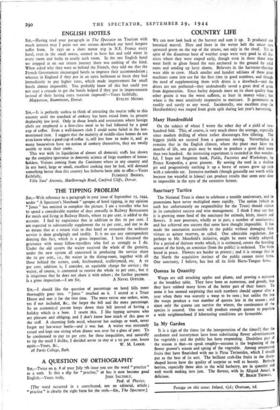COUNTRY LIFE
WE can now look back at the harvest and sum it up. It produced one botanical marvel. Here and there in the wetter belt the uncut ears sprouted green on the top of the straws, not only in the sheaf. Yet in spite of the disastrous bout of weather crops were very good in all dis- tricts where they were reaped early, though even in these those who went forth to glean found the ears anchored to the ground by solid roots and sending up lusty shoots. Believers in the harvester-thresher were able to crow. Much smaller and handier editions of these great machines came into use for the first time in good numbers, and though the need of supplementing them with driers is a drawback—and the driers are not perfected—they undoubtedly saved a great deal of grain from degeneration. Since barley depends more on its sheer quality than other grains it was the worst sufferer, at least in money value ; but wheat is the most sensitively responsive to moisture. It germinates as readily and surely as any weed. Incidentally, one excellent crop (in Herefordshire) was reaped from grain spilt during last year's harvesting.


























 Previous page
Previous page